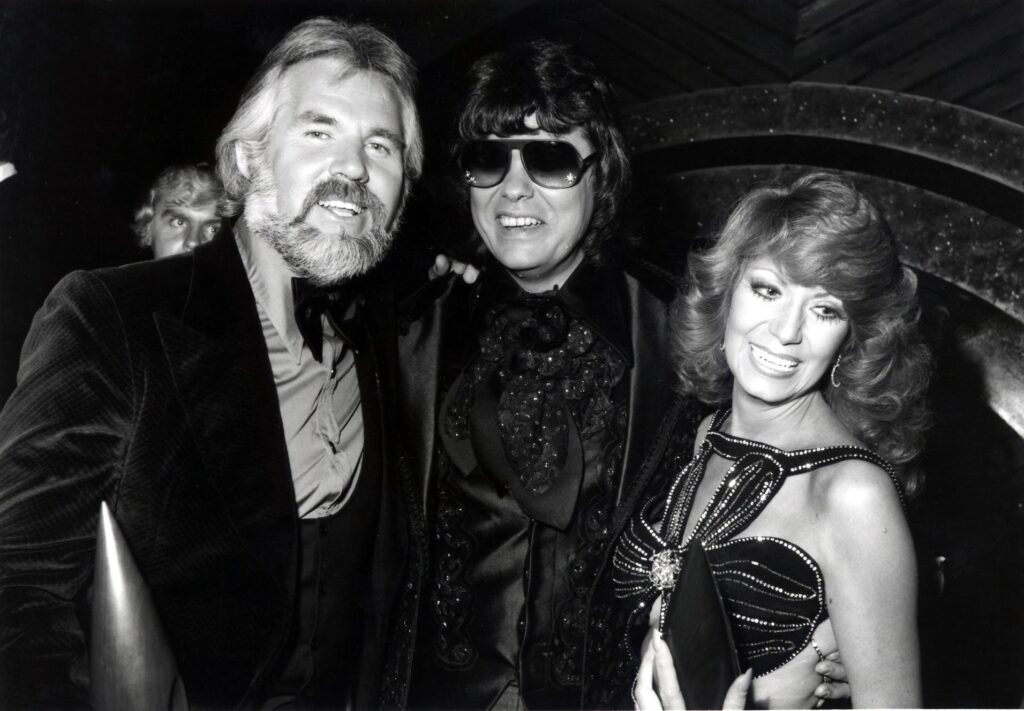
A Haunting Duet That Captures the Agony of a Love That Refuses to Die
There are some songs that, no matter how many years pass, feel as raw and fresh as the day you first heard them. They aren’t just melodies; they’re emotional time capsules, perfect replicas of a moment in time, a feeling you thought you had long since forgotten. For many, the year 1987 holds a special place in the heart of country music, a time when the genre was undergoing a quiet transformation, yet still held onto the soulful storytelling that made it so powerful. And in that year, two giants of the genre came together to create something truly special, a duet that spoke to the unspoken truths of love’s end: Kenny Rogers and Ronnie Milsap‘s collaboration on “You Can’t Say You Don’t Love Me Anymore.”
This wasn’t just another chart hit; it was a deeply felt conversation between two legendary voices. The song, written by the masterful pen of Kenny Rogers himself along with Steve Glassmeyer, became the lead single from Ronnie Milsap‘s album, Heart & Soul. Upon its release, it quickly resonated with listeners, climbing the country charts and peaking at a respectable No. 7 on the Billboard Hot Country Singles chart. But its chart position, while impressive, tells only a fraction of the story. The true impact of this song lies not in its numbers, but in its profound, aching honesty.
The narrative of “You Can’t Say You Don’t Love Me Anymore” is a familiar and painful one. It’s the story of a lover refusing to accept a breakup. It’s a plea, a stubborn denial of a truth that feels too heavy to bear. The narrator, whether a man or a woman, is convinced that the love is still there, buried beneath layers of pride, anger, and hurt. The lyrics are a direct address to the former partner, an insistence that their eyes, their touch, and their lingering presence tell a different story than their words. “You can’t say you don’t love me anymore,” the chorus declares, “When I look in your eyes, I can’t believe the lie.” It’s a heartbreaking testament to the way love can linger, an unwanted guest in a house it no longer owns. The genius of the song lies in its simplicity. There are no grand metaphors or flowery language; just a stark, unblinking look at the reality of a love that is over on paper but not in the heart.
The combination of Kenny Rogers‘ gravelly, world-weary voice and Ronnie Milsap‘s smooth, soulful delivery creates a perfect storm of emotion. Rogers, the master storyteller, delivers the lines with a sense of resignation, as if he’s seen this all before, a man who knows the pain of an unspoken truth. Milsap, with his powerful yet tender piano work, complements Rogers‘ vocals, adding a layer of poignant melody that elevates the song from a simple country ballad to a truly transcendent piece of art. Their voices intertwine, not as a harmonious duet but as two different perspectives on the same central pain. It’s as if they are both talking to the same person, or perhaps, talking to each other, two kindred spirits sharing the burden of a love that just won’t die. This song wasn’t just a collaboration; it was a conversation, a shared reflection on the complexity and messiness of human relationships. For those of us who grew up with these voices as the soundtrack to our lives, “You Can’t Say You Don’t Love Me Anymore” remains a powerful reminder of a time when a song could truly capture the essence of a feeling, hold it up for all to see, and make us feel a little less alone in our own heartache.